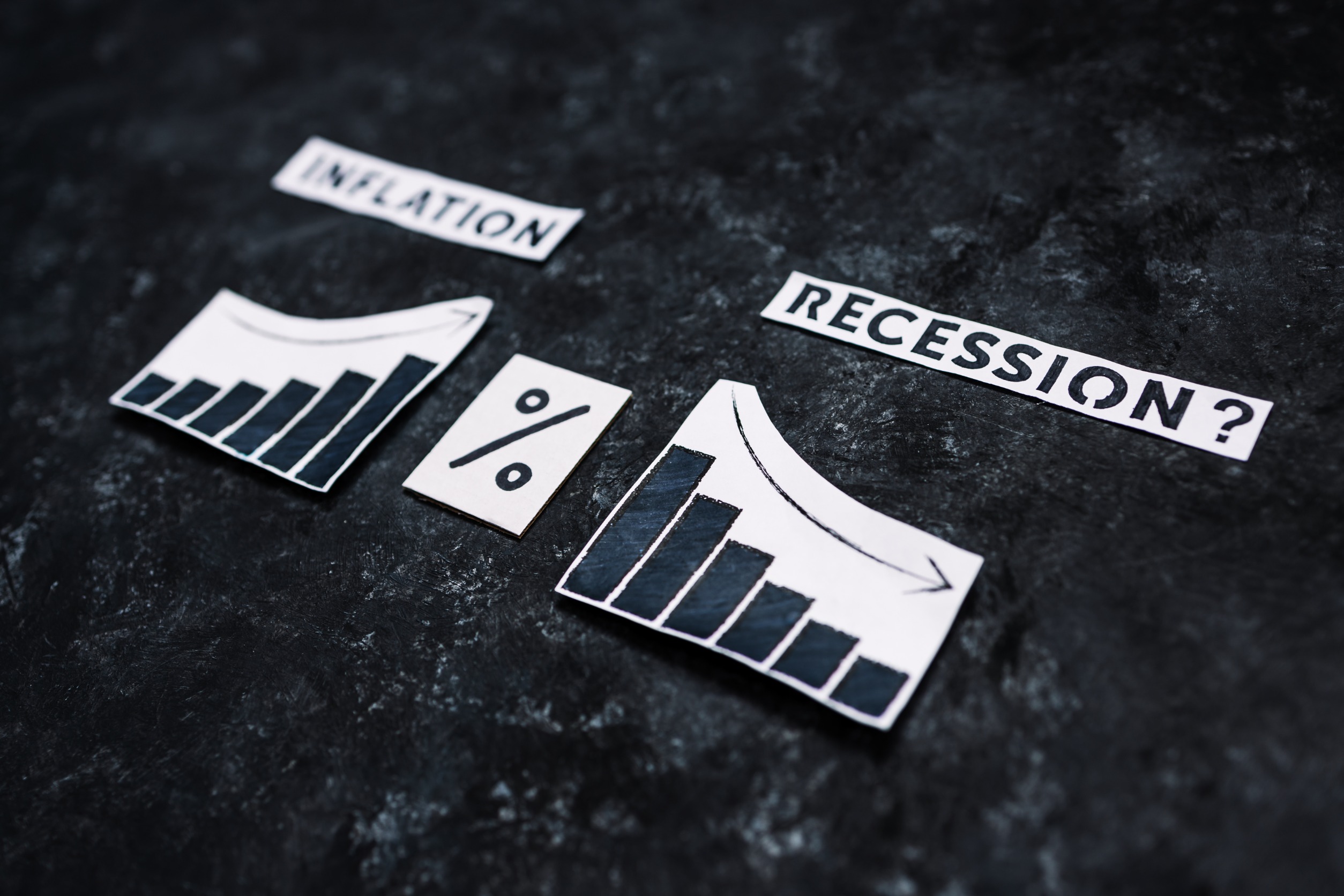
Currently, there’s a lot of economic uncertainty. Inflation has been an continuing issue, and talks of a potential recession are ongoing, including among experts. However, many people wonder what the difference is between inflation vs. a recession. Here’s a look at what each term means, as well as how the two economic concepts stand apart.
What Is Inflation?
Inflation is an economic condition marked by broad price increases. In most cases, it’s reflected as a percentage, showing how much the price of goods or services went up over a particular timeframe, such as year-over-year.
Some amount of inflation isn’t necessarily troublesome. Low but steady price increases can be the mark of a strong economy. However, if the inflation rate gets particularly high, the sudden rise in costs becomes challenging for consumers to shoulder. As a result, most have to adjust their spending habits to account for the higher prices, and that can slow down economic growth.
Inflation is triggered in many ways. First, cost-push inflation occurs when the price of raw materials or labor rises. If that happens, companies usually increase the prices of their goods and services to offset their rising expenses.
Second, there’s demand-pull inflation. That happens when demand for a product or service outpaces the supply, causing the price for the product or service in question to rise.
What Is a Recession?
Recessions are economic downturns. While there are some nuances to the definition, an economy isn’t generally considered to be in a recession until the gross domestic product (GDP) declines for two consecutive quarters or a period of six months straight.
When recessions occur, consumer spending typically decreases. Business costs can rise, and lending often tightens. Additionally, unemployment rates usually increase as companies start scaling back their workforces as a cost-saving measure or to align their operations with reduced demand. Stock markets also often decline, and that can lead to less investing and spending, slowing the economy further.
Inflation vs. Recession: What’s the Difference?
There are several key differences between inflation vs. a recession. First, inflation describes an increase in the prices of goods and services, while a recession is an economic condition where economic activity and the GDP decline. While recessions are measured using the GDP, inflation typically relies on consumer price index (CPI) and wholesale price index (WPI) data, as those both measure the cost of goods and services, specifically.
However, both create economic stress for consumers and businesses alike. Additionally, they can commonly co-exist. High inflation – and the moves required to overcome it – can trigger a recession, as higher prices alter consumer behavior and can slow the economy.
For example, when inflation is problematic, the Federal Reserve typically increases interest rates to slow inflation down. When that occurs, the cost of borrowing increases, and that creates economic strain that may slow the economy, potentially leading to a recession.
Ultimately, both high inflation and recessions are challenging economic conditions, and governments often try to avoid both. However, economies experience fluctuations at times, and recoveries usually follow periods of difficulty. Still, it’s wise to prepare for the impacts of both and adjust your behaviors as needed, ensuring you don’t experience any undue hardship when high inflation or recessions occur.
Are you surprised by the differences between inflation vs. a recession? Are you concerned about ongoing inflation or the chances of a recession on the horizon? How are you planning to manage inflation or a possible recession to keep your household financially stable? Share your thoughts in the comments below.
Read More:
- Eight Ways to Counter Inflation
- Take These 5 Steps to Recession Proof Your Savings
- Managing High Inflation in Retirement
Tamila McDonald is a U.S. Army veteran with 20 years of service, including five years as a military financial advisor. After retiring from the Army, she spent eight years as an AFCPE-certified personal financial advisor for wounded warriors and their families. Now she writes about personal finance and benefits programs for numerous financial websites.
Leave a Reply